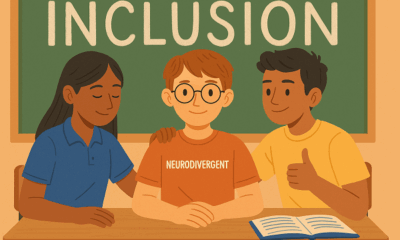Education
NEEDED: Curriculum Change
From redefining the purpose of the education system to focusing on skill-based education, ANSHU PANDE focuses on the changes required in the realm of curriculum

Indian education system has evolved drastically in the past few years. In the times of yore, Gurkul system of teaching was followed. The name comes from Sanskrit language, where ‘guru’ means teacher, and ‘kul’, means domain. It translates as “domain or family of the guru.” The students or ‘shishya’ lived near or with the guru in the same house. The gurus believed in the three-step process of imparting knowledge – Shravana, Manana and Niddhyaasana. Shravana meant listening to the words of wisdom which the teacher spoke. Manana meant interpreting the meaning of the lessons and Niddhyaasana meant the complete comprehension of knowledge. From Sanskrit to the Holy Scriptures, from Mathematics to Metaphysics, the guru taught everything a shishya wanted to learn until the guru was sure he had taught everything he could teach. The learning was closely linked to nature and life with rich knowledge and values.
However, the winds of change blew during the Colonial era. In the 1830s, Lord Thomas Babington Macaulay introduced the English language to India. The syllabus became limited to “modern” and specific subjects like science, mathematics, language, history, geography and civics, whereas, subjects like philosophy and metaphysics were considered unnecessary at school level. The mode of teaching became confined to classrooms, which broke the link with nature and also created a gap in the teacher-student relationship.
It was post freedom in 1947, that the Indian government, renowned educationists, social scientists and leaders, joined hands to make education Indiacentric. At present, India’s higher education system is the largest in the world, hosting more than 70 million students in less than two decades.
While we have gained freedom from British Raj, have we gained freedom from British curriculum?
Even today, most of the schools are following the curricula of 1918 with subjects like English, Math, Science, History and foreign languages. Is this how we plan on preparing the future generation to thrive in the changing landscape? There are debates about future of education, about embracing technology in the classroom, but there is almost no debate on changing what we are teaching in schools. A student that begins primary school today will graduate from university in the mid-2030s and their career will last through 2060 or beyond. But, with the subjects that are currently being taught, it is becoming a huge challenge to even get into a decent college after finishing school. Problemsolving, creative thinking, digital skills, and collaboration are in greater need every year yet they are not taught in our schools. Even when schools teach digital skills, they focus on how to use technology – how to create a document or a presentation – rather than how to create technology. In fact, some of the topics we teach today will no longer be essential in the 2030s: handwriting is increasingly obsolete, complex arithmetic is no longer done by hand, and the internet has replaced the need to memorise many basic facts.
Howard Gardner is an American developmental psychologist and his theory on different types of intelligence is prolific. Each one of us has one or more than one of these intelligences, such as naturalist (it is a human ability to discriminate among living things such as plants and animals, as well as sensitivity to other non-living things), logical/mathematical (good with numbers and validity), musical (understanding of sounds, pitch, rhythm and tone), existential (it is the sensitivity and capacity to tackle deep questions about human existence, such as the meaning of life, why are we here, purpose, etc), interpersonal skills (interacting well with others), body kinesthetic (understanding oneself), spatial (mental imagery, image manipulation, graphic and artistic skills, and an active imagination). Sailors, pilots, sculptors, painters and architects all exhibit spatial intelligence and linguistic skills (the ability to think in words and to use language to express and appreciate complex meanings). That is what schools are supposed to prepare students for, but they put into us certain types of intelligence on precedence by ignoring other types. Each one of us is gifted with one or more of these intelligences—our school education is supposed to help us realise our potential, which just does not happen; resulting in a gross waste of talent.
The syllabus of our education system needs to usher in an educational revolution and an evolution of teaching techniques. The study material being taught in educational institutions is just a very small part of the actual amount of matter contained under a topic. The curriculum and pedagogy has to give way to future needs and requirements. The lessons being taught today will get outdated in future. Even as you are reading this, someone has devised something new to the world in his/her interest of subject. That hasn’t come from the monotonous subjects being taught. It’s the updated curriculum – that has included technology and advanced programming in it, which has led to a new invention.
The hindrance to technology driven classrooms prevails and is incompletely exploited in the nation. Proper measures should be undertaken to increase awareness of the benefits in adding technology to the classroom and bring in a significant change in student’s perception of subjects. The usual brick and mortar concept has reached its peak and it is high time we welcome modern technology in classrooms to help bring in a new effective learning atmosphere and teaching methodology.
A change in teaching of STEM subjects is the need of the hour. One should put special focus on STEM subjects and develop innovative hands-on solutions in Maths, Science and Robotics for schools. Introduction of mobile labs and science centers by the government and the initiative to include parents in this change so that learning becomes a continuous, multigenerational process is a must.
Classroom lectures sometimes become too boring encouraging only a little student involvement or creativity. But, if the teacher brings practical and exciting analogies to teach the classroom becomes more interesting and lessons become easy to understand. Many can question that every subject does not need practical guidance and theoretical knowledge is the base of the subject, but the visual experience and practical guidance can help in avoiding the boredom. Many successful entrepreneurs have not got the theoretical knowledge because their success stands on the experience they have gained. This is the philosophy that needs to be imparted from the school days of the students. Some schools in the country focus on the extracurricular activities to develop the student capabilities in terms of problem solving, writing skills, verbal skills, communication enhancement, physical fitness and more. These activities should be made available to each student in the country irrespective of the state and region.
Here are a few more points we could work on:
Focus on skill-based education
Our education system is geared towards teaching and testing knowledge at every level as opposed to teaching skills. “Give a man a fish and you feed him one day, teach him to fish and you feed him for a lifetime.” If you teach a person a skill, you enable him for a lifetime. Knowledge is largely forgotten after the semester exam is over. Still, year after year Indian students focus on cramming information. The best crammers are rewarded by the system. This is one of the fundamental flaws of our education system.
Personalise education – one size does not fit all
Assembly line education prepares assembly line workers. However, the drift of economic world is away from assembly line production. Indian education system is built on the presumption that if something is good for one kid, it is good for all kids.
Some kids learn faster, some are comparatively slow. Some people are visual learners, others are auditory learners, and still some others learn faster from experience. If one massive monolithic education system has to provide education to everyone, then there is no option but to assume that one size fits all. If however, we can effectively decentralise education, and if the government did not obsessively control what would be the “syllabus” and what will be the method of instruction, there could be an explosion of new and innovative courses geared towards serving various niches of learners,
Take for example, the market for learning dance. There are very different dance forms that attract students with different tastes. More importantly, different teachers and institutes have developed different ways of teaching dancing. This could never happen if there was a central board of dancing education which enforced strict standards of what will be taught and how such things are to be taught.
Central regulation kills choice, and stifles innovation too. As far as education is concerned, availability of choices, de-regulation, profitability, entrepreneurship and emergence of niche courses are all inter-connected.
Implement massive technology infrastructure for education
India needs to embrace internet and technology if it has to teach all of its huge population, the majority of which is located in remote villages. Now that we have computers and internet, it makes sense to invest in technological infrastructure that will make access to knowledge easier than ever. Instead of focusing on outdated models of brick and mortar colleges and universities, we need to create educational delivery mechanisms that can actually take the wealth of human knowledge to the masses. The tools for this dissemination will be cheap smartphones, tablets and computers with high speed internet connection. While all these are becoming more possible than ever before, there is lot of innovation yet to take place in this space.
Redefine the purpose of the education system
Our education system is still a colonial education system geared towards generating babus and pen-pushers under the newly acquired skin of modernity. We may have the highest number of engineering graduates in the world, but that certainly has not translated into much technological innovation here. Rather, we are busy running the call centres of the rest of the world – that is where our engineering skills end.
The goal of our new education system should be to create entrepreneurs, innovators, artists, scientists, thinkers and writers who can establish the foundation of a knowledge based economy rather than the low-quality service provider nation that we are turning into.
Effective deregulation
Until today, an institute of higher education in India must be operating on a not-for profit basis. This is discouraging for entrepreneurs and innovators who could have worked in these spaces. On the other hand, many people are using education institutions to hide their black money, and often earning a hefty income from education business through clever structuring and therefore bypassing the rule with respect to not earning profit from recognized educational institutions. As a matter of fact, private equity companies have been investing in some education service provider companies which in turn provide services to not-for-profit educational institutions and earn enviable profits. Sometimes these institutes are so costly that they are outside the reach of most Indian students.
There is an urgent need for effective de-regulation of the Indian education sector so that there is infusion of sufficient capital and those who provide or create extraordinary educational products or services are adequately rewarded.
Take mediocrity out of the system
Our education system today encourages mediocrity – in students, in teachers, throughout the system. It is easy to survive as a mediocre student, or a mediocre teacher in an educational institution. No one shuts down a mediocre college or mediocre school. Hard work is always tough, the path to excellence is fraught with difficulties. Mediocrity is comfortable. Our education system will remain sub-par or mediocre until we make it clear that it is not okay to be mediocre. If we want excellence, mediocrity cannot be tolerated. Mediocrity has to be discarded as an option. Life of those who are mediocre must be made difficult so that excellence is attained.
Reforming school examination systems
There is a strong need to reform the examination system to focus on logical reasoning, problem-solving and Higher Order Thinking Skills (HOTS). In recent years, major changes in the CBSE examination system have been observed. The Class X Board examination has been made optional and a new grading system has been introduced which really works for the modern-day student. State Boards have also welcomed the measures and followed up with efforts to update their respective curricula and examination systems. These refinements not only improve the learning outcomes of the students, they also improve the quality of secondary education. Thus, new reforms are needed which can enhance innovation of the existing system.
Promotion of languages
We especially laud the suggestion of mother tongue-based education. Children should not be at a disadvantage just because of their cultural distance from English or Hindi. NCERT’s evaluation study found out that mother tongue-based education has shown increased attendance and retention in schools. It has also shown a positive impact on students’ achievement in language studies as well as mathematics. However, there should be basic English education for every student as this is a language which opens more doors.
Comprehensive Education – Ethics, Physical Education, Arts & Crafts, Life Skills
Anything less than a holistic, well-rounded education results in only half an education. Non-scholastic areas are as important as scholastic areas for the overall development of a child. This change in policy to provide special tools and toys to play with, and a well-maintained sports facility to play in, does wonders for the child. More importantly, what is growth without the appreciation of art and the ability to express ideas, emotions and thoughts freely? Inclusion of visual and performing arts in school life is as welcome as a breath of fresh air.
These are times of great transformation; a period when the technologies around us will alter all aspects of life. Education has a unique and unassailable opportunity in our society to prepare us for such a change. It is precisely our human ability to learn, to harness our minds and to apply creative thought to new problems that will allow us to adapt and overcome any future technology or transition, as it has so many times in the past. We cannot rely on an outdated syllabus that teaches subjects which are not required in the coming future. Our children deserve the best knowledge and techniques, for they have to be prepared to face the world.
Education
AI to Become a Core Subject from Class 3: India’s Big Leap Toward a Future-Ready Generation

In a landmark move to make India’s school system future-ready, the Department of School Education & Literacy (DoSE&L), Ministry of Education, has announced that Artificial Intelligence (AI) and Computational Thinking (CT) will be introduced as part of the school curriculum from Class 3 onwards, beginning in the academic year 2026–27.
The initiative marks a major step in preparing students for an AI-driven world, ensuring early exposure to technological literacy, ethics, and problem-solving. The curriculum, currently being developed through a consultative process with CBSE, NCERT, KVS, NVS, and States/UTs, will fall under the National Curriculum Framework for School Education (NCF-SE) 2023, in alignment with the National Education Policy (NEP) 2020.
A stakeholder consultation held on 29th October 2025 brought together education leaders, including Prof. Karthik Raman from IIT Madras, who heads the CBSE expert committee responsible for shaping the AI & CT curriculum. The focus is on designing a meaningful, inclusive framework that integrates AI not as an advanced elective but as a foundational skill — comparable to literacy and numeracy in importance.
Shri Sanjay Kumar, Secretary, DoSE&L, emphasised that AI education should be viewed as a universal skill closely linked to real-world applications. “Every child’s distinct potential is our priority. Policymakers must define minimum thresholds and evolve them with changing needs,” he said. He also stressed on teacher training as the backbone of successful implementation, with modules under NISHTHA, and resource materials being prepared by NCERT and CBSE.
The Ministry plans to release AI handbooks and digital resources by December 2025, followed by a grade-specific rollout supported by video-based learning materials and structured training.
By embedding AI education from the foundational years, India aims to nurture a generation that understands, creates, and applies technology ethically — transforming the vision of AI for Public Good into everyday classroom reality.
Education
Dharav Utsav to Celebrate Rajasthan’s Cultural Heritage and Local Talent

Education
How to Build Better Parent-Teacher Communication

Good communication between parents and teachers plays an important role in a child’s learning and confidence. When both stay connected, it helps students feel encouraged and understood. Still, it’s not always easy to keep that connection strong. Busy schedules and small misunderstandings can make things tricky. The good news is that a few simple habits can make a real difference. Let’s examine what parent-teacher communication truly entails and how both parties can collaborate more effectively.
What is Teacher and Parent Communication?
Teacher and parent communication is all about staying connected and working together for a child’s growth. It’s not just a one-time meeting or message but a continuous, two-way exchange of updates, ideas, and feedback. When teachers and families stay in touch regularly, it creates a strong support system that helps students do better both in and outside the classroom.
In simple terms, teachers share what’s happening at school, like:
- Homework and assignments
- Grades and test results
- Class activities and behavior updates
- Social and emotional progress
- Strengths and areas where a student might need extra help
At the same time, parents share what’s happening at home, such as:
- How the child feels about schoolwork
- Any challenges or changes they’ve noticed
- Questions or suggestions about learning support
When both sides keep the communication open, it builds trust and teamwork. Teachers understand students better, and parents feel more involved in their child’s education.
Tips for Smooth Parent-Teacher Communication
Talking to parents doesn’t have to feel formal or uncomfortable. In fact, the better your connection with them, the smoother your teaching journey becomes. Whether you’re reaching out for the first time or trying to keep the conversation going, here are some real-world ways to build trust and keep communication easy, clear, and helpful.
1. Begin with a Friendly Introduction
Right at the beginning of the academic year, take a moment to introduce yourself to parents. You can send a friendly email, a printed note, or even a short video message. Let them know who you are, what you’re excited about, and how they can reach you. This early step breaks the ice and helps parents feel welcome and included in their child’s learning journey. When you set a positive tone early, it makes future communication easier and more comfortable for everyone.
2. Communicate Often, Not Just When There’s a Problem
Don’t let communication only happen during parent-teacher conferences or when something goes wrong. Send regular updates about what’s happening in class, upcoming events, or even small successes their child has had during the week. These don’t need to be long messages. A quick note about a student’s progress or behavior can make a parent’s day and help build trust over time. It also shows that you’re not just reaching out when there’s a problem.
3. Invite Their Voice, Too
Sometimes we forget that parents know their child better than anyone else. Ask questions. How does their child learn best at home? Are there any routines or challenges you should know about? And when they speak, listen fully. These conversations often reveal things that can shape how you teach and connect with the student.
4. Be Available and Approachable
Parents need to know that they can come to you when something is on their mind. That doesn’t mean being available 24/7, but it does mean creating space for honest conversations. You can let them know about your preferred times for calls or meetings, and also offer virtual options if in-person isn’t possible. Make sure the tone of your communication is always warm and non-judgmental so they feel safe speaking up.
5. Treat Parents as Team Members, Not Outsiders
Instead of just delivering information, try to involve parents as partners in their child’s learning. Share ideas for how they can help at home, ask for their observations, and thank them for their efforts. If there’s a behaviour issue or academic challenge, work with them on solutions instead of just reporting the problem. A strong home-school partnership creates a consistent support system for the student, both inside and outside the classroom.
6. Show Cultural Awareness and Respect
Families come from many different backgrounds, and their expectations may vary. Take the time to learn about their culture, language preferences, and family structure. Avoid making assumptions or using language that might feel exclusive. If needed, provide translations or simplify your communication to make sure everyone understands. This small effort shows parents that you value who they are and where they come from.
7. Share Progress in a Way That’s Clear and Supportive
Progress updates should be balanced. Yes, it’s important to point out what’s not working, but don’t forget to highlight what is. Give specific examples instead of vague praise or criticism. Say things like, “I’ve noticed Priya really lights up during science experiments,” or “Rohan is still working on staying focused during group tasks.” This kind of feedback feels personal and helps parents understand the full picture.
8. Choose the Right Tools for the Right Message
Too many apps or tools can overwhelm parents quickly. Choose one or two that you’ll stick to, whether it’s a school app, WhatsApp group, or weekly email. Use them for quick updates, reminders, or sharing student wins. Keep your tone casual but clear. Tech is helpful only when it makes life easier for both sides.
9. Respect Their Time and Yours
Teachers and parents are both juggling busy schedules. Respecting each other’s time helps keep communication productive and stress-free. If you’re scheduling meetings, offer time slots that work for working parents, too. Keep conversations focused so that meetings don’t run longer than necessary. Also, set clear boundaries about when you’re available.
When Is Parent-Teacher Communication Most Important?
Parent-teacher communication matters most right at the start of preschool. That first day of preschool is a big moment for every child and their family. When teachers and parents talk openly from day one, it helps everyone feel more comfortable and sets up a strong partnership for the rest of the year.
Why It Matters on Day One
- The first day of preschool often brings a mix of excitement and nervousness for both kids and parents. Honest communication helps everyone feel a little more comfortable.
- Open communication lets teachers learn about each child’s background, interests, and any worries or comforts. This way, teachers can give more personalized care and support from the beginning.
- Early conversations help build a sense of trust between home and school, making the classroom feel like a safe and welcoming place for the child.
- When teachers share classroom routines and expectations with parents on the first day, it helps families get ready and feel involved in their child’s new experience.
- These early talks also give teachers helpful details, like which languages are spoken at home, special family traditions, or any recent changes in the child’s life. This helps teachers communicate better and offer the right kind of support.
By making communication a priority from the very first day, both teachers and parents can work together to help each child settle in smoothly and feel confident as they start their schooling journey. Building strong parent-teacher teamwork not only supports a child’s emotional well-being but also lays the foundation for long-term academic success.
Closing Thoughts
We hope these tips help make your conversations with parents smoother and more meaningful. Building that connection takes time, but small efforts can lead to strong partnerships.
This article is authored by-
Chitra Khanna,
Content Strategist,
KLAY Preschools & Daycare
Education
Beyond the Syllabus: School Teachers’ Insights on Project-Based Learning

How classroom experiences are being reshaped through projects, inquiry, and authentic learning
As the classroom grows beyond the boundaries of textbooks and blackboards, so too does the role of the teacher, and the very meaning of learning. Project-Based Learning (PBL), once considered a niche innovation, is increasingly being embraced by educators across schools in India. But what happens when PBL moves from theory to practice?
To answer this, we turned to the people at the heart of the learning experience: teachers.
In conversations with educators from diverse school contexts, one theme was clear: PBL is not just a teaching strategy; it’s a transformation in how students learn, engage, and grow.
From Worksheets to Real-World Work: How PBL Differs from Traditional Homework
One of the clearest contrasts teachers observed was how PBL moves learning from repetition to relevance. Traditional homework often reinforces information through rote exercises. PBL, by contrast, asks students to apply their knowledge to solve problems, create products, or investigate issues that matter to them.
One teacher shared how using PBL to raise student awareness about water pollution was a hit in the class. Instead of just assigning problems, the students were made to create awareness posters, conduct surveys in their neighbourhood, and suggest solutions through group presentations. The teacher also noted how the students took the lead, and had an ownership over this project that they usually don’t showcase.
The shift from repetition to application fosters deeper engagement. Several teachers noted that students who previously struggled to stay motivated with homework showed renewed interest when asked to take on real-world challenges.
Changing Roles: Teachers as Facilitators, Not Just Instructors
Project-Based Learning also changes the role of the teacher, who went from being the sole source of knowledge to a guide who supports inquiry and exploration.
One common change teachers noticed was on how they had to let go of control in the classroom. Naturally, the students now had to work on projects on their own, and could only come to the teacher for guidance and help. The teachers noted that they helped their students ask the right questions, find credible sources, and evaluate their work, instead of completely placing the burden of learning on the teacher themselves.
This change isn’t always easy. It requires a shift in mindset and in many cases, rethinking how time is used in class. But most teachers agree: the shift is worth it. PBL has encouraged interdisciplinary approaches, made space for collaborative learning, and created more meaningful student-teacher interactions.
Unlocking Student Potential: What PBL Offers Beyond Academics
Academic performance remains important, but a lot of teachers repeatedly pointed out that PBL nurtures a broader set of skills, like critical thinking, collaboration, communication, and creativity. One teacher particularly noted on how their quietest students became ‘leaders’, and became outspoken when it came to presenting their ideas and projects. While not directly, PBL helped these students find their voices, and find confidence in their effort and abilities.
Students learn to manage time, negotiate roles, and solve problems, skills that aren’t always reflected in exam scores but are vital for life beyond school. For many teachers, the most rewarding aspect of PBL was watching students take initiative, work through failure, and reflect on their learning.
Widening the Circle: Strategies for Scaling PBL in More Classrooms
While the benefits are clear, teachers acknowledged that implementing PBL at a large scale comes with challenges, like limited time, rigid curriculum structures, and unfamiliarity among teachers.
They offered a few practical suggestions for schools and educators considering wider adoption:
- Start Small and Build Confidence: Starting with short projects aligned to the unit you are already teaching introduces PBL in an easy manner. This way, teachers do not have to worry about overhauling their curriculum, or for making huge changes to their current teaching methods.
- Encourage Collaboration Among Teachers: Joint planning across subjects makes projects richer and more integrated. This also promotes interdisciplinary skills among students, and allows them to craft solutions using different subjects and skillsets.
- Make Time for Reflection: Embedding opportunities for students to present, critique, and reflect helps solidify learning. By reflecting on their projects and mistakes, they can understand how they can improve their approach to PBL.
- Support Professional Development: Teachers emphasized the need for ongoing training, not just one-off workshops but long-term spaces for peer sharing and mentorship. This continuous development would cement and solidify the methods and outcomes that will maximise using PBL for student benefits
Looking Ahead: Redefining Success in Education
PBL challenges traditional ideas of what learning looks like. It pushes students to move beyond memorization, and it challenges teachers to rethink their methods. But more than anything, it opens up the classroom to ideas, to communities, and to possibilities. No longer are students just preparing for exams, but also for the complex world outside school.
As educators continue to navigate the changing landscape of education, the insights from teachers point us toward a hopeful future, where learning is meaningful, relevant, and rooted in real-world experience.
This article is authored by Mrs. Padmashini M Patro, Principal, Air Force School Bamrauli
Education
Over 1 Lakh Single-Teacher Schools Educate 33 Lakh Students Across India: MoE Data

Education
Over 3 Lakh Schools Join Hands for India’s Largest-Ever Innovation Challenge: Viksit Bharat Buildathon 2025

In a historic moment for Indian education, more than 3 lakh schools across the country came together to participate in the Viksit Bharat Buildathon (VBB) 2025, the largest live school innovation challenge ever organised in India. The nationwide event was inaugurated in New Delhi by Union Education Minister Dharmendra Pradhan, marking a significant milestone in the Government’s efforts to embed creativity, innovation, and problem-solving into the school ecosystem.
The Viksit Bharat Buildathon, organised by the Department of School Education & Literacy (DoSEL) in collaboration with Atal Innovation Mission (AIM), NITI Aayog, and AICTE, saw over one crore students from Classes 6 to 12 working simultaneously during a 120-minute live innovation session. Students teamed up in groups of three to five to design prototypes and propose solutions under four themes — Atmanirbhar Bharat, Swadeshi, Vocal for Local, and Samriddhi.
While inaugurating the event, Minister Pradhan interacted virtually with students of PM SHRI Government High School, Khorda, Odisha, and later visited Delhi Public School, Mathura Road, and Kendriya Vidyalaya No. 2, Delhi Cantt. Commending students for their creativity, he said, “The vision of Viksit Bharat will be realised through the innovative spirit of our young learners. These ideas will not only address domestic challenges but also create global models for change.”
The event drew widespread participation, with Uttar Pradesh leading the numbers (78,206 schools), followed by Maharashtra (41,198), Gujarat (20,017), and Madhya Pradesh (18,129). Other states like Tamil Nadu (16,370), Bihar (15,732), Odisha (12,344), and Haryana (11,567) also recorded impressive engagement, showing the growing momentum for grassroots innovation across regions. Even smaller territories like Ladakh (358), Puducherry (149), and Andaman & Nicobar Islands (171) participated actively, reflecting the nationwide reach of the initiative.
According to Sanjay Kumar, Secretary, DoSEL, this unprecedented participation signals a transformation in how Indian students approach learning. “This one-of-a-kind movement strengthens innovative thinking and enhances the problem-solving capabilities of students across India,” he said. Deepak Bagla, Mission Director of AIM, called the initiative a “mass movement connecting schools in remote villages with those in metropolitan cities through innovation.”
A New Chapter for Indian Education
The Viksit Bharat Buildathon signifies more than just a hackathon — it reflects a systemic shift in Indian education towards experiential and innovation-led learning. As schools across the country engage in design thinking, tinkering, and collaboration, students are being equipped not just with knowledge, but with the mindset and skills needed to build a self-reliant India.
By nurturing creativity from an early age and fostering partnerships between schools, government bodies, and industry, the Buildathon is shaping a generation ready to contribute to the vision of Viksit Bharat 2047 — a developed, empowered, and innovation-driven India.
Education
17-year-old Innovator Designs Learning Tools for the Visually Impaired

At just 17, Singapore-based student Ameya Meattle is proving that age is no barrier to impact. What began as a small idea to make education more accessible has evolved into a mission that is transforming how visually impaired learners experience learning and skill development.
Ameya founded Earth First at the age of 14 — a social enterprise that helps visually impaired individuals “earn and learn” by creating sustainable, eco-friendly products. Working with eight NGOs across India and Singapore, the initiative has trained more than 100 visually impaired students and launched over 23 sustainable product lines, from tote bags and jute placemats to macramé planters. Each design is adapted to provide hands-on learning opportunities and help trainees gain confidence in both craft and enterprise.
Beyond social entrepreneurship, Ameya has focused deeply on education and technology. He led a Python programming course for 50 visually impaired students, designing custom training modules that made coding accessible through screen readers and tactile tools. By introducing technology as a viable career pathway, Ameya hopes to help students move from manual tasks to high-skill, digital opportunities.
His work also extends into assistive technology research. Under the mentorship of Dr. Pawan Sinha at MIT, Ameya developed a VR-based diagnostic game to assess visual acuity in children — turning the process into an interactive experience rather than a clinical test. The tool is being piloted at MIT’s Sinha Lab and with Project Prakash in India, helping doctors evaluate and track visual development before and after eye surgeries.
In addition, during his internship at the Assistech Lab at IIT Delhi, Ameya worked on designing tactile STEM teaching aids, such as accessible periodic tables and coding tutorials for visually impaired learners. His goal, he says, is not just to innovate but to make scientific learning inclusive and joyful for all.
Ameya’s work highlights how education, empathy, and innovation can intersect to create a more equitable future — one where technology serves not just progress, but people.
Education
Empowering Young People to Champion Neuro-Inclusion
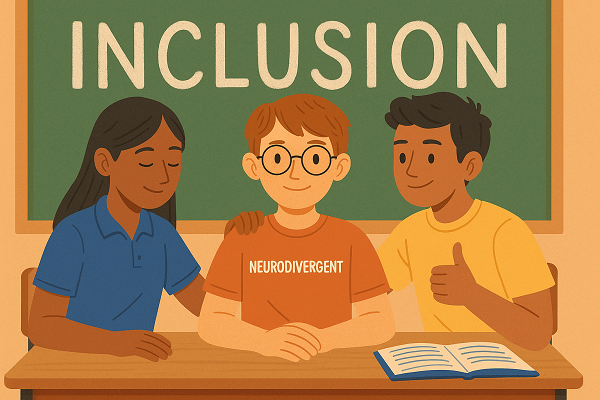
Aamir Khan’s recent film Sitaare Zameen Par has brought neurodiversity into the mainstream, and sparked important conversations about inclusion and rethinking what we consider ‘normal’. These cultural moments help raise awareness, but they also remind us that there is still a long way to go in making inclusion a lived reality.
It is estimated that 1 in 8 children in India have a neurodevelopmental condition such as ADHD, autism, learning disabilities and intellectual disability. Many of these children often face social isolation, bullying and exclusion – often the earliest of these experiences begin during school.
At the same time, today’s young people indeed carry with them a deep sense of social justice and openness to diversity. The energy, empathy and bold creativity of young people can be harnessed – if nurtured in the right way, at the right time – to make them equal partners in cultivating inclusive cultures in schools and communities.
We need young allies – people who are not only informed, but who engage meaningfully with neurodivergent peers, actively support the cause, and drive inclusivity. The key lies in equipping them with the knowledge, skills, and ultimately the mindset needed for inclusion. Schools must invest in nurturing young allies who can champion neurodiversity and take ownership of inclusion in spaces they belong to.
Our experience and work on youth allyship has shaped our understanding of what it takes to make this happen. Here are some of our most important insights:
- From awareness to active allyship: We need to move beyond awareness about neurodiversity, by equipping students with the knowledge, skills, confidence, and opportunities to take meaningful action as allies for neuro-inclusion.
- A personalised journey: Allyship is a lifelong journey which is most authentic when it grows organically from curiosity, dialogue, self-initiative and experiences. It cannot be imposed, and must be led by the individual.
- Student autonomy: When students have the autonomy to choose how they contribute, their commitment deepens. We should give students a mix of structure and freedom to help – guidance to shape their efforts, alongside the space to decide how they want to step up for meaningful change.
So how can schools nurture students as young allies?
- Create safe, relatable spaces led by students, for students Peer-led conversations give students space to reflect on diversity, challenge stereotypes, and share personal experiences. When peers lead, the power dynamics shift – students listen more openly, express without fear of judgment, and begin to see inclusion as something that belongs to them, not just a directive from authority figures. Our Inclusive Duniya Circles are one example of such spaces. Students are primed and empowered to sensitively facilitate conversations about disability, neurodiversity and inclusion.
- Explore connections to students’ interests and strengths
Students should be given the opportunity to discover how they feel about the cause and how they want to contribute. At the end of each Circle, we often ask, “How do you want to step up for an Inclusive Duniya?” The answers vary, but what matters most is that the initiative comes from the students themselves. Our role as adults and educators is to support them in making it happen.
Some take the route of advocacy – sparking conversations and campaigning for the cause with schoolmates. Others channel creativity through music, art, or theatre that challenges stereotypes.
For instance, the song Inclusive Duniya (available on Spotify), was written, composed and produced by students on their own from carefully crafting lyrics which invited listeners to imagine a world where everyone feels like they belong to picking melodies that convey warmth. Students used their creative talents to make a gentle but compelling call to action for allyship. Helping students tap into their personal strengths and interests enables authentic engagement and contribution to the cause.
- Embed into academic and co-curricular pathways
Linking students’ inclusion initiatives and projects to existing academic opportunities, such as CAS projects in the IB curriculum, allows them to merge personal passion with academic commitment. Framing these initiatives as co-curricular activities also strengthens students’ profiles for college applications. This dual recognition provides a formal recognition to their efforts and ensures students’ efforts are sustained – adding motivation, depth and commitment to their efforts.
The voices of young people not only impact their peers, but also have a ripple effect in shaping how families talk about disabilities, and, in due course, how communities and workplaces open themselves up to inclusion.
With the right support, our young generation can become a driving force for an inclusive world. Schools, as microcosms of society, provide the most conducive space for young people to explore sensitive concepts, question biases, and practice inclusion in meaningful ways. By nurturing young allies who truly value and celebrate diverse ways of thinking and being, we can lay the foundation for a more Inclusive Duniya.
This article is co-authored by:

Pooja Sharma, Founder and CEO, Inclusive Duniya

Srushti Patel, Manager- Schools Programme, Inclusive Duniya
Education
Ministry of Education Urges Schools to Adopt UPI for Digital Fee Payments, Promoting Ease of Schooling
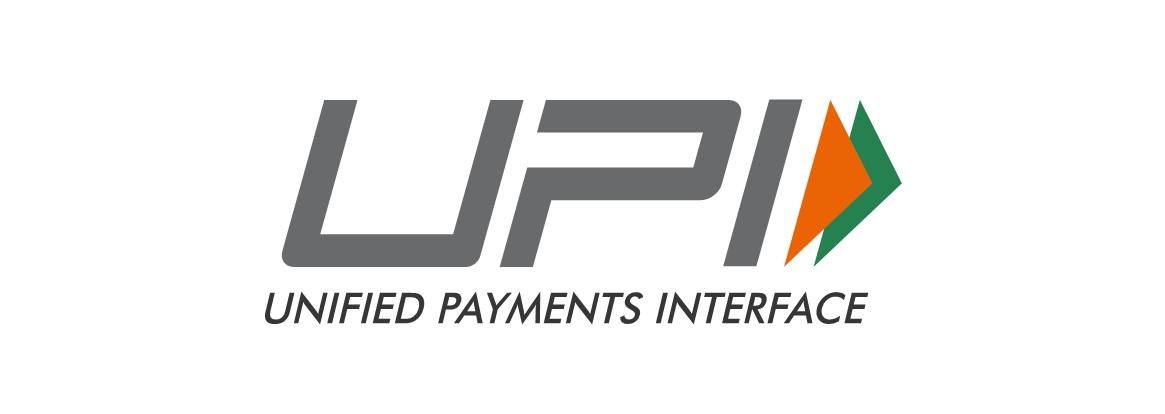
Education
Supreme Court Calls for Early Sex Education in Schools: “Not from Class IX, But from a Younger Age”

In a landmark observation, the Supreme Court of India has emphasised the urgent need to introduce sex education at a younger age, rather than waiting until Class IX as is the current norm. The apex court stated that children should be informed and sensitised about the physical and emotional changes that accompany puberty — and taught the necessary care and caution that come with it.
The observation came from a Bench comprising Justice Sanjay Kumar and Justice Alok Aradhe, which noted that the absence of early sex education leaves children vulnerable to misinformation and misunderstanding during their formative years.
“Sex education should be provided to children from a younger age and not Class IX onwards. It is for the authorities concerned to apply their mind and take corrective measures so that children are informed of the changes that happen after puberty,” the court stated.
The Bench made the remarks while hearing an appeal filed by a 15-year-old boy, who had been denied bail by the Allahabad High Court in a case under Sections 376 and 506 of the Indian Penal Code (IPC) and Section 6 of the Protection of Children from Sexual Offences (POCSO) Act. Recognising that the accused was himself a minor, the Supreme Court had earlier granted him bail in September 2025.
In the same case, the Court had directed the Government of Uttar Pradesh to submit an affidavit explaining how sex education is currently implemented in schools. The state responded that sex education is introduced only in Classes IX to XII, following NCERT guidelines. However, the Bench expressed concern over this delayed introduction and urged policymakers to revisit the framework to ensure children receive age-appropriate education much earlier.
The Court set aside the High Court’s order and made the juvenile’s bail permanent until the completion of the trial. More importantly, its remarks have reignited the national debate on the need for comprehensive sexuality education in India, which many experts argue is crucial to preventing abuse, reducing stigma, and promoting healthy development among adolescents.
Education experts have long maintained that early, factual, and inclusive discussions about puberty, consent, and emotional health must begin before adolescence — ideally in primary school — to prepare children for real-world experiences and relationships. The Supreme Court’s observation is expected to prompt renewed policy discussions on revising the sex education curriculum nationwide.
-

 Education3 months ago
Education3 months agoSupreme Court Calls for Early Sex Education in Schools: “Not from Class IX, But from a Younger Age”
-
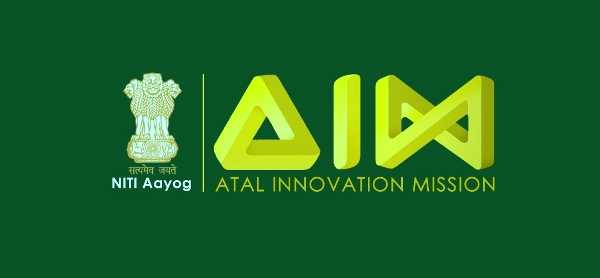
 Education3 months ago
Education3 months agoAtal Innovation Mission and IFCCI Join Hands to Scale Up Atal Tinkering Labs Across India
-

 Education3 months ago
Education3 months agoBeyond the Syllabus: School Teachers’ Insights on Project-Based Learning
-

 Education2 months ago
Education2 months agoDharav Utsav to Celebrate Rajasthan’s Cultural Heritage and Local Talent
-

 Education3 months ago
Education3 months agoDelhi Government Launches Online First Aid Training Programme for Teachers
-

 Education3 months ago
Education3 months ago17-year-old Innovator Designs Learning Tools for the Visually Impaired
-
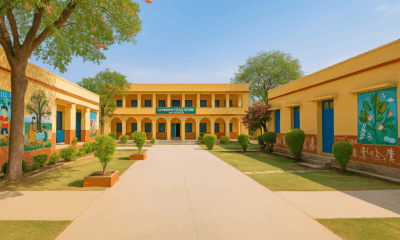
 Education3 months ago
Education3 months agoMinistry of Education to Promote Clean and Vibrant School Environments
-

 Education3 months ago
Education3 months agoNCERT Introduces ‘Swadeshi Module’ to Foster Self-Reliance and Indian Values in Schools
-

 Education2 months ago
Education2 months agoAI to Become a Core Subject from Class 3: India’s Big Leap Toward a Future-Ready Generation
-

 Education3 months ago
Education3 months agoOver 3 Lakh Schools Join Hands for India’s Largest-Ever Innovation Challenge: Viksit Bharat Buildathon 2025







